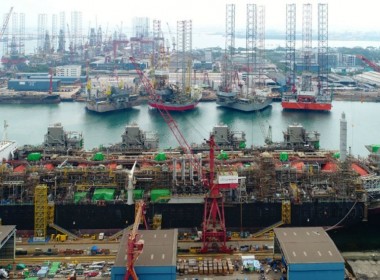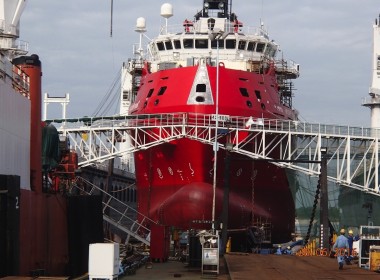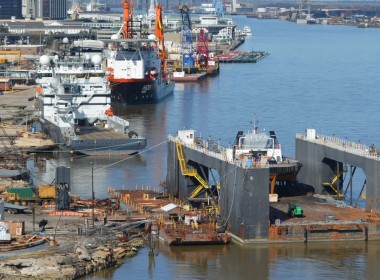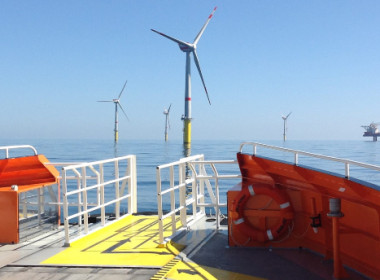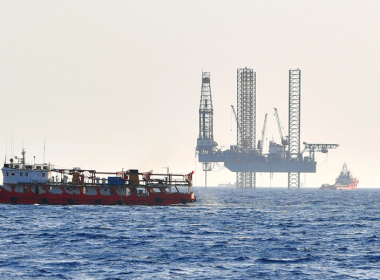COLUMN | Tor Olav Trøim, Golar LNG, diversity and carbon emissions equity [Offshore Accounts]

Tor Olav Trøim has enjoyed a stellar career in shipping. Now chairman of Golar LNG, a role he has held for more than five years, Mr Trøim has served as a director of the liquefied natural gas (LNG) company since it was founded in 2001. He is also the Chairman of jackup rig owner Borr Drilling, which he also helped found in 2016.
After surviving five long years of drilling downturn, his bet on Borr has delivered spectacular results. Its stock price is up over 900 per cent since the dark days of October 2020, when its demise was widely predicted (not least by me).
Who’s a dinosaur?
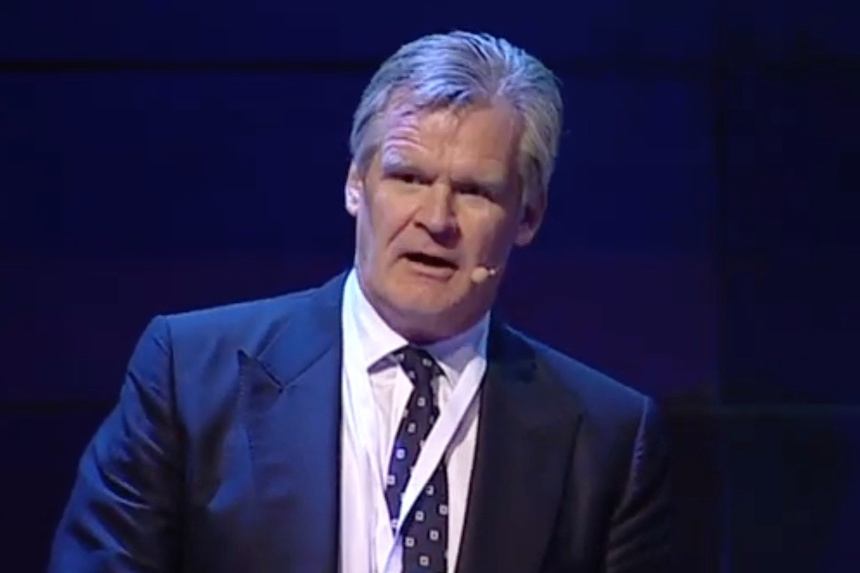
Ten days ago, he was accused of being a “dinosaur” with “fossilised attitudes” by respected shipping journalist Michelle Wiese Bockmann in a post on Linkedin, in which she followed up on a free-to-read Lloyd’s List article she had written about his comments on diversity at the Marine Money conference in New York. Mr Trøim’s crime was not announcing the imminent order of two duel-fuel, very large crude carriers (VLCCs) via his company Magni Partners, but rather of saying that developing offshore oil and gas in poor countries did more for human well-being than diversity policies in publicly listed companies. Ouch.
Specifically, Ms Wiese Bockmann condemned Mr Trøim for stating that “the benefits of having a transgender on the board were ‘pretty small’ compared with being able to change the lives of people in Africa and particularly Mauritania,” where Golar has an LNG project under development.
I am not here to wade into the culture wars (Okay, maybe I will.), but I want to highlight that the world definitely needs more LNG from the likes of Golar, and much, much less coal production, and that radical transformation is required to manage the world’s energy systems. Focus on diversity quotas, who is using which bathroom, and the specific composition of the boards of publicly-listed companies in the west are distractions to the issues of poverty, habitat destruction and, dare I mention it, the shifts in the world’s climate, which appear to be underway.
The modern day equivalents of bread and circuses distract people from some of the biggest challenges facing humanity (Hint: These do not relate to your choice of pronoun.).
No debate is possible?
Ms Wiese Bockmann believes that we should “not debate whether he’s right or wrong. You just don’t say things like that in public, even if you think it.”
Actually, you should debate these ideas, because they are important. Also, people should be free to share their opinions, so that those opinions can be discussed. Not to defend sexism, racism, or homophobia, which are indefensible and grossly unfair and which rob talented people of opportunity, and indeed rob them of their lives in countries like Saudi Arabia, Nigeria, and Mauritania (where gay sex is punishable with death). It would be easier if sexists and racists spoke out loud so people were aware of their views and could address them head-on, as Ms Wiese Bockmann has done.
Indeed, we should legitimately debate how resources should be used by large companies and governments and what investments need to be made to make the world a better place for future generations. This includes taking a position on whether to fund oil and gas projects in poor countries (yes) and whether to restrict coal burning (yes) and whether to invest more in renewables (yes). Resources are finite, and for every Twitter dispute over perceived wrongs, energy is expended and focus is lost – energy and focus that could be used more productively for better outcomes.
The Golar story
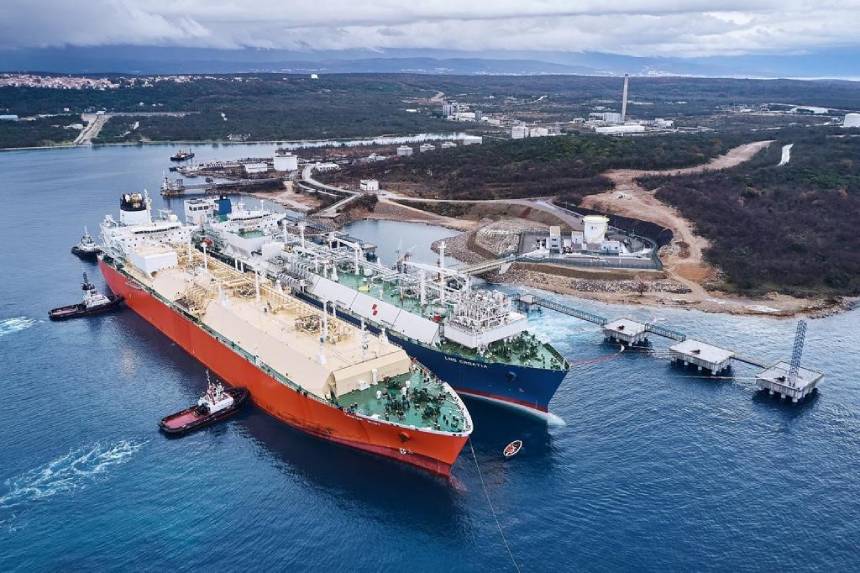
First, some background. Popularly known as the “right-hand man” of Norwegian shipping magnate John Fredriksen, until a spectacular falling out between the two men in 2014, Mr Trøim was also a director of Seadrill between 2005 and 2014. He also served, at various times, as a director of Fredriksen’s tanker company Frontline, bulk carrier firm Golden Ocean Group, and other Fredriksen-affiliated companies between 1995 and the 2014 falling out with his billionaire boss.
Golar has sold 15 LNG carriers (with a sixteenth, Golar Arctic, due to be sold later this year) and seven LNG regasification units, plus a downstream gas carrier and a power station. It raised a total of US$7 billion from these divestments in its transformation to become a pureplay floating LNG (FLNG) company. Golar owns one FLNG vessel on contract off Cameroon for Perenco, Hilli Episeyo, which is on charter until July 2026. Earlier this year, Golar announced it would acquire New Fortress Energy’s ownership stake in the vessel by handing over Golar’s 4.1 million shares in New Fortress and US$100 million in cash. Golar will also take over approximately US$323 million in debt obligations linked to Hilli Episeyo from New Fortress.
Second FLNG project is for BP off Senegal and Mauritania
The company’s second FLNG vessel, Golar Gimi, is under conversion at Keppel Shipyard in Singapore for BP’s Greater Tortue Ahmeyim (GTA) project on the maritime border of Mauritania and Senegal. In May, Golar announced that Golar Gimi was 94 per cent technically complete, but said that the departure date from the yard had slipped into the third quarter of this year to allow more of the of commissioning work to be performed in Singapore rather than at the GTA Hub location offshore.
A few weeks later, Upstream reported that McDermott was “experiencing significant technical problems” with its pipelay vessel Amazon on the project, which threatens to delay first gas exports from Gimi until next year, as McDermott is behind schedule completing the subsea workscope to connect the FLNG vessel at the hub to the production wells in deepwater. It’s been a while since we ran a story of McDermott’s incompetence, so we were surprised to learn of these problems.
Nigerian ambitions
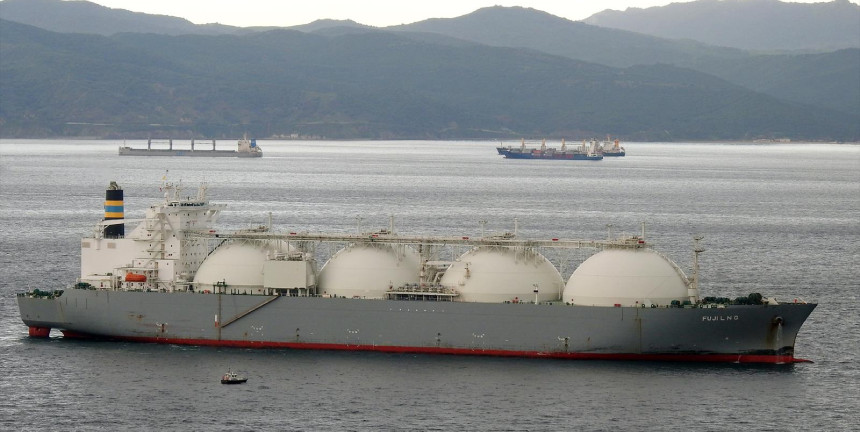
In May, Golar also announced that it was selling Gandria for scrap for around US$15 million. Gandria was a 1977-built LNG carrier that Golar was holding in lay-up as a potential future conversion candidate for a third FLNG project. Instead, Golar exercised its option to acquire the 148,000-cubic-metre carrier Fuji LNG (built in 2004), which it is targeting for FLNG conversion, for US$73 million.
Golar has held extensive negotiations with the government of Nigeria to develop an FLNG project there. Good luck with that…
Golar reports well in ESG, FLNG is important transitional technology
Golar’s own Environmental, Social and Governance (ESG) reporting is actually very comprehensive. The chairman might not like the time and effort put into the mandatory report, but his company makes a good case for its community initiatives and efforts in its 2022 ESG Report. Whether such reporting delivers value for money for shareholders is, of course, debatable.
However, as we have argued before, FLNG is one of the greenest forms of fossil fuel energy (when done correctly), and it provides a great opportunity to develop previously stranded assets in remote locations like eastern Indonesia, East Timor, and even Cyprus relatively quickly and relatively cheaply. No surprise then that Eni recently submitted a preliminary environmental impact assessment with the Mozambique government for a proposed second FLNG vessel and a contract with Technip Energies to develop an identical sistership to its Coral Sul FLNG unit, which came online in deepwater off Pemba in the Indian Ocean last year.
Unfortunately, even as a “bridge fuel” to reduce CO2 emissions from coal, the uptake of LNG is not growing fast enough.
The failures of energy policy
If you only read one report into the world energy industry this year, it should be the 72nd Statistical Review of World Energy published last month for the first time by the Energy Institute, which you can download here for free.
The data here is shocking – much more shocking than Mr Trøim’s opinions on diversity. More shocking even than the recent American Supreme Court decision that affirmative action in American university admissions discriminates against Asian students and is a form of racism that is unconstitutional. More shocking than the recent ruling in the UK that the Royal Air Force’s efforts at enhancing diversity in its ranks through mandatory quotas were discriminatory.
What could be so shocking?
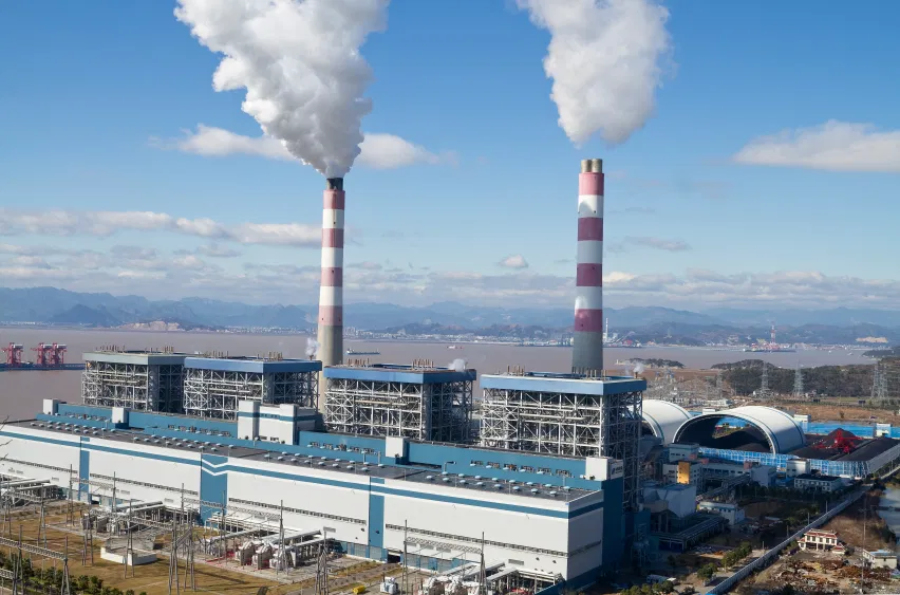
Despite massive investment in renewables, fossil fuel consumption as a percentage of primary energy remained steady at 82 per cent. To put that in perspective, fossil fuels’ share in 1996 was 86 per cent. Despite billions and billion of dollars in investment in renewable energy and low-carbon electricity generation, progress over the last quarter-century has been painfully slow (more data here). This is because, whilst investment in renewable energy has increased, so too has investment in energy from fossil fuels. Humanity is hungry for energy, and in many developing and middle-income countries like China, Indonesia, and India, coal-fired power stations continue to be built.
Global coal production in 2022 increased by over seven per cent compared to 2021, reaching a record high of 175 EJ. EJ stands for exajoule, which is a unit of energy based on the joule, and one EJ is equal to 10^18 joules, or one quintillion joules. China, India, and Indonesia accounted for over 95 per cent of the increase in global coal production.
China remains by far, the world’s largest emitter of carbon dioxide. Even on a per head basis, Chinese emissions now exceed those of the UK, Sweden, and France, but are still behind those of Australia and the United States. However, China’s large population means that it accounts for nearly a quarter of all of human carbon emissions.
The dilemma for Africa
Carbon emissions in China are now 5.8 per cent above 2019 levels. The global disparity in energy use is massive. Africa accounts for the smallest share of global greenhouse gas emissions, at less than four per cent, in contrast to 23 per cent in China, 19 per cent in the US, and 13 per cent in the European Union. Bear in mind that the population of Africa today is almost the same as the population of China, around 1.3 billion people in either.
This gap in carbon emissions is not because Africa is pursuing especially green policies, or because it has made massive investments in solar panels and wind farms. It is because Africa is dirt-poor. At present, 600 million people, or 43 per cent of the total population of the African continent, lack access to electricity, and most of them are in sub-Saharan Africa.
Many African countries face a paradox in energy development. Western banks and western governments say that they should not develop their oil and gas reserves, and obtaining finance is hard. But oil and gas revenues, if used properly (and this is an important “if”, given the history of state plunder in Africa by people such as the ruling family of the Republic of Congo), could provide the funding to build the infrastructure and facilities that many African countries so desperately need such as schools and hospitals, roads, and ports. Earlier this year, the campaign group Friends of the Earth attempted to block the UK government providing over US$1 billion of funding to the Mozambique LNG project operated by Total. It was defeated in the UK courts, thankfully, as per Reuters.
Blocking the production of hydrocarbons in poor countries is unethical and unfair. Friends of the Earth is right to campaign against fossil fuel production if it wishes, but it should direct its ire at the world’s consumers, not at new producers in poor countries where emissions per head are a tiny fraction of those in the rich countries and China. American petrol-guzzling vehicles mean that the US has amongst the highest fossil fuel usage per head in the world, whilst China’s continued expansion of new coal-burning power stations is a disgrace.
Trying to sue Xi Jinping’s government for its unceasing pollution may be hard, but it is certainly better than trying to block the single biggest investment in the history of Mozambique, a country with one-twentieth of the wealth per head of China. Similarly, not investing in Mozambique simply means continuing European reliance on gas from the USA, Qatar, and the UAE. Do the British protestors campaigning against new oil projects in the North Sea really want to remain dependent on Saudi Arabian crude?
Life’s a trade-off
Life is full of difficult choices and trade-offs. I for one am grateful that Tor Olav Trøim has raised important issues with his controversial comments. A lot of vested interests would prefer that people spent their time squabbling on Twitter rather than considering how to create fairer societies, cleaner energy, and better standards of living. Golar and its FLNG peers are deploying a technology that should permit coal consumption to be reduced and emissions to fall.
Michelle Wiese Bockmann is right to criticise the Chairman of Golar if she disagrees with his opinions on diversity and ESG. She has the platform to do so. However, Mr Trøim is also right to draw attention to Western hypocrisy over carbon emissions and to the continuing problem of global poverty and to use the Marine Money conference to draw attention to these problems. The International Monetary Fund calculates that the gross domestic product of Senegal is just US$1,719 per capita, and that of Mauritania is US$2,475, compared to US$80,000 per capita in the United States and US$101,000 in Norway.
Projects like BP’s GTA with the Gimi FLNG unit from Golar can help to correct those imbalances, with good governance and sound technical solutions, even in the context of a world that should be reducing its greenhouse gas emissions (but so far has spectacularly failed to do so).
Background Reading
Read Golar’s director biographies in full. Two of the company’s seven directors are women. The company’s March 2023 strategy presentation is also an interesting piece of background.
Borr’s first quarter 2023 presentation is packed with optimism on the drilling sector, although Borr still managed to incur a net loss in the first three months of this year of US$7.4 million from its fleet of 24 modern jackups, two of which are still to be delivered in 2025.
Our World in Data – Fossil Fuels can be accessed here.
If the Statistical Review of World Energy is too intimidating for you, David Blackmon has summarised its findings in Forbes.


